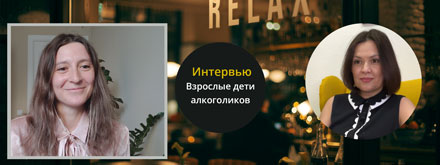1. Relationships in a couple
- A Difficulty in building up romantic relationships, inability to establish connections (loneliness, repeated failures, instability in relationships)
- Coping with a breakup (emotional turmoil, a difficulty in moving on from past relationships, self-criticism, guilt, fears of starting a new relationship)
- Relationship dissatisfaction, conflicts, and mutual resentment (in the context of couples therapy or individual counseling)
- Dealing with a partner's infidelity
- Internal conflicts related to relationships, such as a love triangle
- Love addiction (losing oneself in relationships, inability to endure the separation, intense emotions seeking)
- Suffering in the relationships the underlying mechanisms of which remain unclear to you.
2. Family
- Marital relationships, dissatisfaction with a marriage or specific aspects of it. Family conflicts
- Conflicts with children: psychological support for parents, seeking resources to solve the problem
- Parenting questions (for parents of children aged 12 and above). Dealing with difficult teenagers and their challenges
- Relationship crises
- Working with couples going through a divorce
- Enhancing communication skills — being heard and learning to listen
- Relationships with parents in adulthood (resentments, mutual misunderstandings, confrontation, arguments)
- Exploring the "past in the present" — how past family experiences influence our current life
3. Difficult life choices
- Crisis and issues related to self-identity, seeking core meanings and values, adapting to significant life changes, setting priorities
- Ambivalence, "pendulum" choices (e.g., leaving and returning; quitting and restarting).
- Internal conflicts associated with the need to make choices (may manifest through physical symptoms; persistent underlying tension that doesn't subside and may even intensify during relaxation)
4. How to change your life
- Exploring psychological "barriers" to change
- Dissatisfaction with specific areas of one's life
5. Self-relationship, self-esteem, identity
- Confidence and lack thereof
- Self-discovery. Professional and personal fulfillment
- Unstable or conflicting identity
- Exploring and accepting one's uniqueness. Training in constructive self-criticism and recognizing desires (including conflicting aspirations) as an important foundation for a realistic positive self-perception
- Finding and providing self-support
- Self-destructive behavior in adolescence and adulthood
6. Personal development
- Age-related crises
- Enhancing quality of life through increased mindfulness (in communication with others and in internal dialogue)
- Character therapy (Gestalt and analytical approach). "If Bob has problems with everyone, then perhaps Bob himself is the main problem"
- Psychological work with the "future" (exploring ways to approach desired futures, loss or stability of life meanings as a result of character-related linkage between the present and predicted future; phenomena of "future neglect," "future idealization," and "past idealization")
- Psychological work with the "past" (reinterpreting internalized introjects, traumatic experiences, recognizing "transference" patterns in everyday communication)
- Shadow integration: working with "forbidden" and hidden contents of consciousness
7. Work with emotional states
- Despair, confusion
- Panic attacks, anxiety, insomnia
- Grief. Coping with a loss
- Resentment, including chronic resentment
- Envy
- Fears, phobias
- Stress, overwhelm, living in constant tension, emotional burnout
- Feelings of guilt
- Suppression, low mood, apathy
8. Psychological support in difficult life situations
- Sudden life changes
- First pregnancy
- Physical and psychological abuse
- Betrayal
- Psychological preparation for significant events




